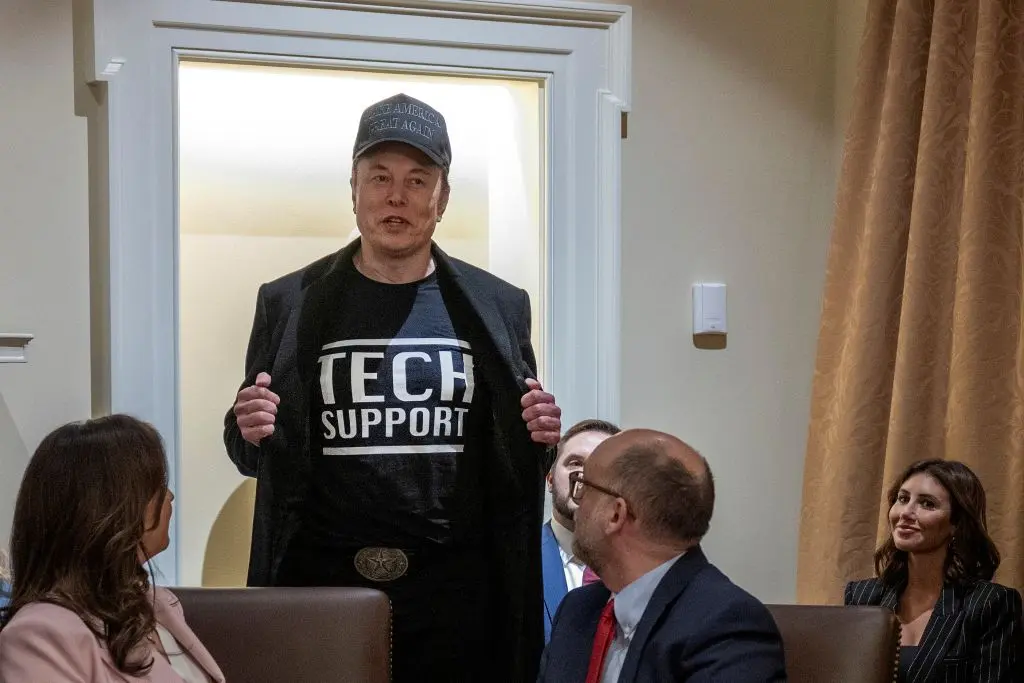Cybersecurity Experts Raise Concerns Over DOGE’s Impact on National Security
The Growing Cybersecurity Threat from DOGE
Since January, Elon Musk’s Department of Government Efficiency (DOGE) has restructured federal programs, leading to the removal of critical positions in hazardous waste management, veteran support, and disease control. While these changes have already disrupted various sectors, cybersecurity experts fear the most severe consequences are yet to come—particularly in the form of data breaches, fraud, and cyberattacks.
DOGE has dismantled key cybersecurity operations by terminating top officers across agencies, weakening the Cybersecurity and Infrastructure Security Agency (CISA), and canceling at least 32 cybersecurity contracts with the Consumer Financial Protection Bureau (CFPB). Former officials and cybersecurity professionals argue that these actions have left government-held personal data vulnerable, particularly within organizations like the Social Security Administration and the Department of Veterans Affairs (VA). Recently, a court filing disclosed that a DOGE employee violated Treasury Department regulations by transmitting unencrypted personal data via email.
Personal Data Vulnerabilities and Unauthorized Access
As DOGE continues its operations, cybersecurity experts are sounding alarms about its lax digital security policies. Reports indicate that DOGE personnel have accessed government networks through unauthorized servers and exchanged sensitive information via unsecured channels. A recent incident saw external coders modifying the DOGE.gov website without approval. Additionally, Treasury officials revealed that a junior DOGE staffer was mistakenly granted temporary access to alter a federal payment system.
Government agencies store vast amounts of personal data to serve citizens effectively. The VA, for example, manages sensitive financial and medical information for millions of veterans. According to Jonathan Kamens, a former cybersecurity overseer for VA.gov, unresolved security flaws in the system could allow hackers to exploit confidential data, leading to potential phishing scams and financial fraud.
The concerns extend beyond the VA. Erie Meyer, former chief technologist at the CFPB, resigned following DOGE’s push for unauthorized data access at her agency. Meyer highlights that security measures, including audit logs tracking employee actions, were deactivated, raising fears that financial data could now be accessed without accountability.
Increased Risk of Fraud and Cybercrime
Cybersecurity experts warn that DOGE’s actions could facilitate cybercrime. The Social Security Administration (SSA), which DOGE has access to, contains sensitive data on elderly citizens—a demographic often targeted by scammers. In 2023 alone, Americans aged 60 and above reported over $3.4 billion in fraud losses. Without stringent cybersecurity measures, criminals may exploit SSA data to manipulate and deceive victims.
The threats extend beyond individual fraud. Former NSA cybersecurity leader Rob Joyce has warned that DOGE’s mass layoffs in federal cybersecurity roles have weakened national security. With over 130 terminated employees from CISA—an agency responsible for protecting critical infrastructure such as power grids and water systems—the U.S. faces a heightened risk of cyberattacks from foreign adversaries.
Senator Elizabeth Warren has voiced similar concerns, questioning whether DOGE’s policies have left government systems open to exploitation by hackers from hostile nations. “Are the gates wide open for cybercriminals from China, North Korea, Iran, and Russia?” she asked in a statement, emphasizing the potential national security consequences.
Systemic Risks and Potential Economic Fallout
Experts also fear that DOGE’s interference could inadvertently damage essential government systems. Federal financial infrastructure, including Social Security payments and Medicare reimbursements, relies on complex, aging digital systems. Disruptions or mismanagement could lead to widespread financial instability, delayed payments, and economic distress for millions of Americans.
A federal judge recently questioned the necessity of DOGE’s access to SSA systems, with a ruling pending on whether to restrict its reach. Meanwhile, a coalition of 19 state attorneys general has filed a lawsuit aiming to block DOGE’s influence over Treasury Department operations.
Jonathan Kamens cautions that the risks will likely escalate if cybersecurity roles remain unfilled. Many cybersecurity professionals have historically transitioned from the private sector to government roles, but the current instability may deter top talent from joining federal agencies. Without proactive cyber defense strategies, evolving threats will continue to outpace security measures, increasing the likelihood of major breaches in the future.
Michael Daniel, president of the Cyber Threat Alliance, warns that the absence of immediate cyber incidents does not indicate adequate security. “Cybersecurity risks unfold over time,” he explains. “The real consequences of DOGE’s actions may not be fully realized until it’s too late.”
